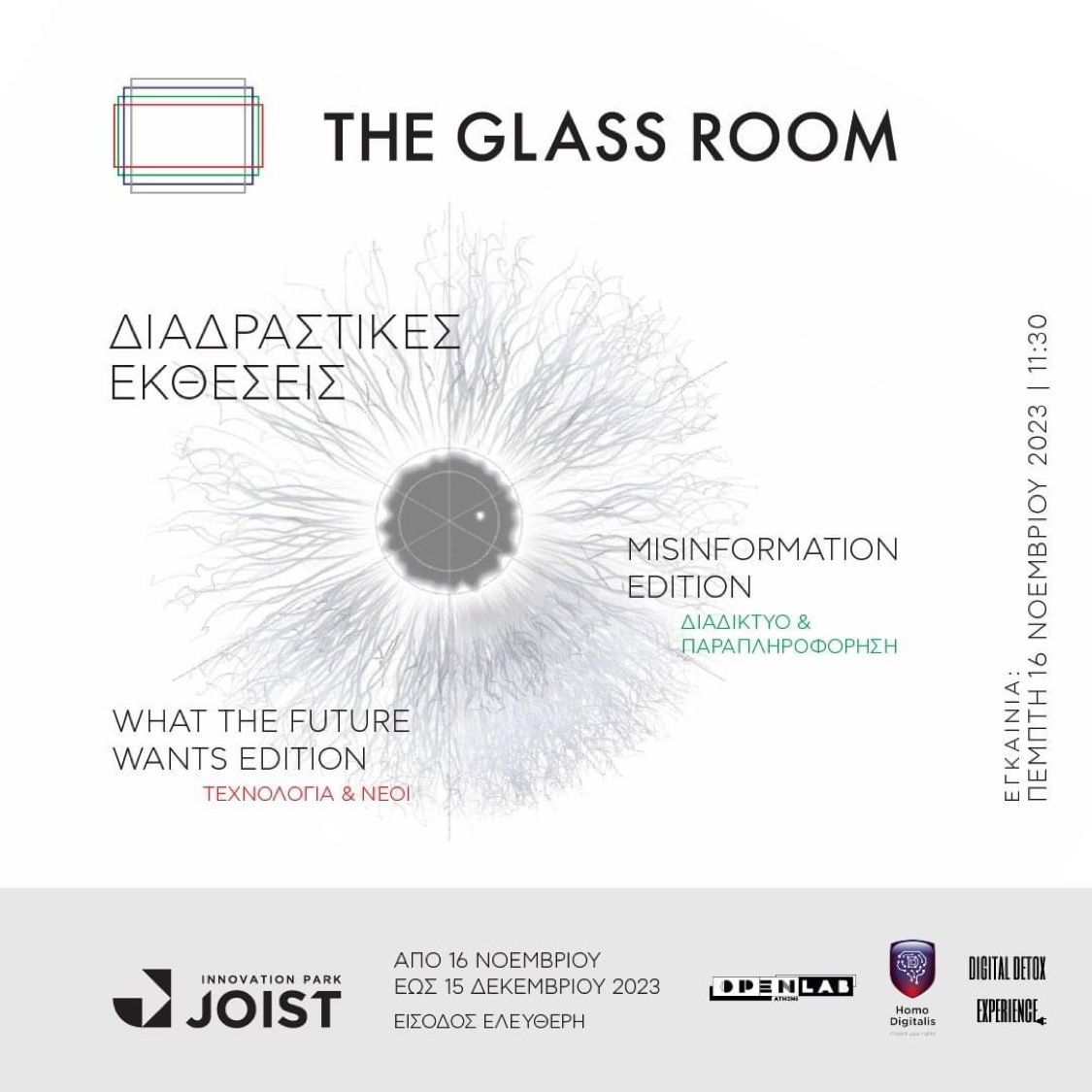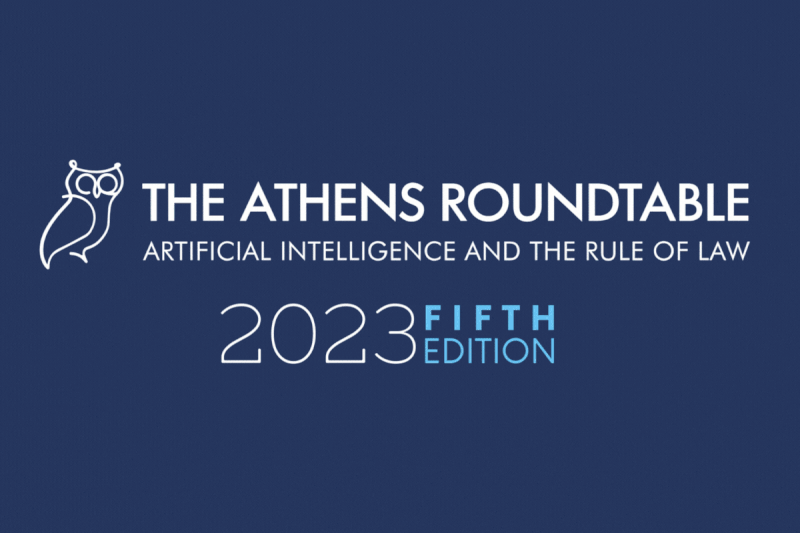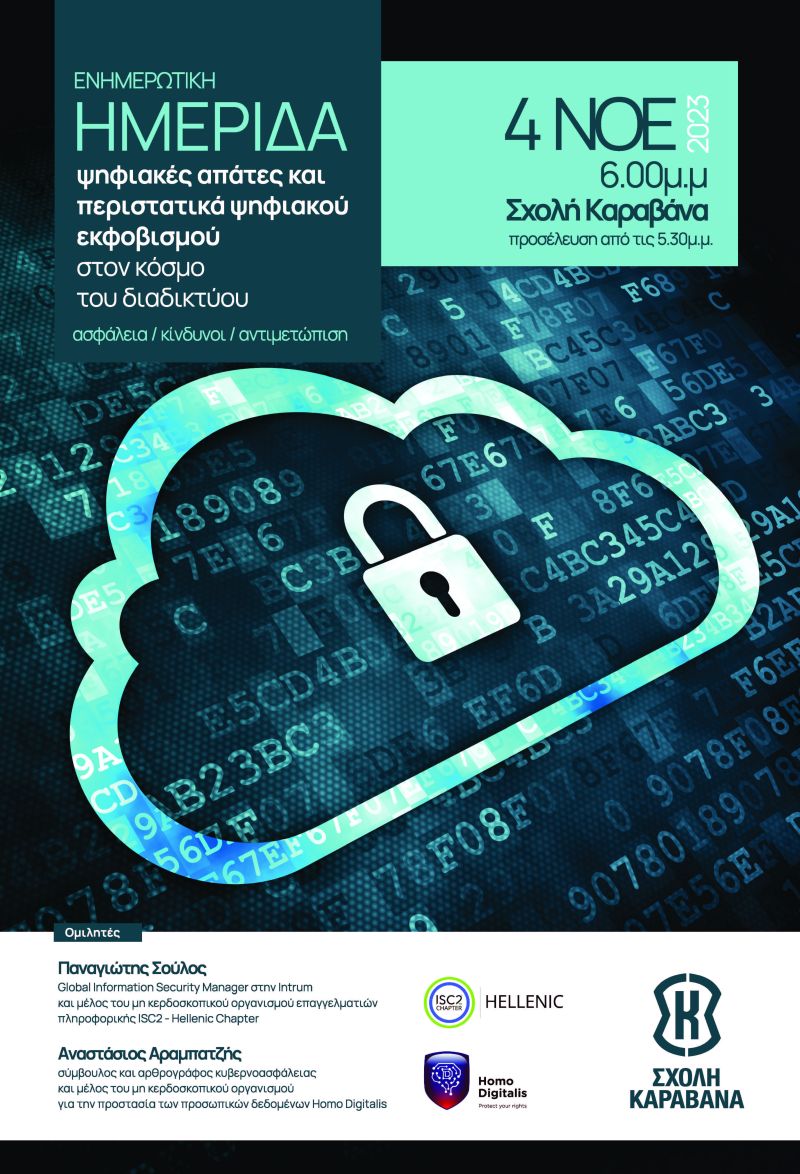The Greek DPA discussed in a Plenary Session our Case on Electronic Communications Metadata Retention
Yesterday, Tuesday 14/11, we were present at the Plenary Session of the Greek DPA during which our case concerning the retention of electronic communications metadata and the right of access to them was discussed. Our Secretary, Eleftherios Chelioudakis, who is the Data Subject in this case, participated there.
In simple terms, metadata allows us to establish who spoke to whom, via which devices, when, for how long, and where the users were approximately located during their conversation. Therefore, metadata is not about the content of the communication but about all the other accompanying elements of the communication. All electronic communications providers in Greece are required to keep it for one year from the date of the communication.
The Court of Justice of the European Union ruled in 2014 that the retention of this amount of metadata for everyone, everywhere and always, constitutes a mass surveillance measure that allows for particularly accurate conclusions to be drawn with regard to the privacy of the persons whose data has been retained, and violates the EU Charter of Fundamental Rights, ruling Directive 2006/24, which allowed for this, as invalid.
However, the Greek State has not revised until today, almost 10 years later, the Law 3917/2011 that transposes this Directive into the Greek legal landscape, while as Homo Digitalis revealed in 2019 the relevant legislative committee that was asked to prepare a new draft law, an explanatory memorandum and an impact assessment on this matter ever delivered any work in the 5 years of its existence (2014-2019).
We look forward with great interest to the next stages of the process and have full confidence in the work of the Greek DPA.
Homo Digitalis co-hosts The Athens Roundtable on AI and the Rule of Law in Washington DC
The time has come for this year’s (5th!) “The Athens Roundtable on AI and the Rule of Law” and Homo Digitalis is pleased to announce that it will be among the Co-Hosts
-When? Thursday 30 November and Friday 1 December.
→ Online via Zoom Events and with a physical presence at the Jack Morton Auditorium, Washington DC, USA
Register now to attend for free here.
The 5th The Athens Roundtable on AI & the Rule of Law will focus on the emerging challenges posed by generative AI & foundational models, while opening up the discussion on international collaboration, measurement and evaluation, regulatory compliance and law enforcement. In 2023, a seismic shift in the AI landscape was triggered. The rise of generative AI & foundational models brought into focus the need for a serious discussion around the development, implementation and governance of AI.
Tune in for a timely discussion with excellent speakers from around the world!
Speech by Homo Digitalis at the Karavanas School in Larissa
We live in a networked world. Children search for information, communicate and play using online platforms. The internet is a place of opportunities and challenges. Every day we read about a new digital scam or incidents of digital bullying. How can we empower parents and children to feel safer in the virtual world of the internet? What are the dangers of the internet and how can we tackle them?
Karavanas School invites parents and children to an interactive and topical information session on Saturday 4 November 2023, at 6 pm at the school premises.
➡ Speakers will be.
– Panagiotis Soulos Global Information Security Manager at Intrum and member of the non-profit organization of IT professionals ISC2 Hellenic Chapter, and
– Anastasios Arampatzis cybersecurity consultant and columnist and member of Homo Digitalis.
Speech of Homo Digitalis at the presentation of the book "Journeys to the Future 2" by journalist Yiannis Mouratidis at the Hellenic Museum of Informatics
Yesterday, we had the great pleasure of attending the presentation of the book “Journeys to the Future 2” by journalist Yannis Mouratidis at the Hellenic Museum of Informatics.
An excellent evening, in which Lambrini Gyftokosta, Director of Artificial Intelligence and Human Rights at Homo Digitalis, gave a speech on the protection of personal data in the digital age.
We would like to thank the journalist and member of Homo Digitalis, Yannis Mouratidis, for the invitation and the Hellenic Museum of Informatics for the hospitality.
As Yiannis writes, “Seven years after the publication of the first book Journeys to the Future, my interest in science remains alive, but my enthusiasm for anything new has given way to a more cautious outlook. Both science and its child technology have benefited society as a whole, but not all members of society equally. The Unknowns Those who control everything, I believe, are all of us who imagine that we are being pulled by invisible strings. The texts in the book were written to make the threads more visible and our dependence on them more conscious.”
The book will be available in a few bookstores, it is already in Zatopek in Kallithea.
Our joint campaign for Cybersecurity Month with the Share Foundation has been launched
Together with the Share Foundation and other civil society organisations, we are participating in a joint campaign for European Cyber Security Month!
Through puzzles, we are clarifying some key terms and tools related to our safe and private online browsing!
If you want to participate, you can follow Homo Digitalis on our social media (X, LinkedIn, Facebook and Instagram) to solve the puzzles and get informed yourself!
Homo Digitalis in Brussels for meetings with MEPs on CSAM
Last week Homo Digitalis travelled to Brussels!
There we participated in awareness raising activities with European Digital Rights regarding the proposed regulation on preventing and combating child sexual abuse (#CSAR) and met with Greek and Cypriot MEPs and their groups in the European Parliament to discuss it!
We would like to thank our members Angelina Barla, Charalambos Daftsios, Haris Kiritsis, George Sarris and Nikoleta Georgakopoulou for their excellent representation!!!
You can read more about our visit to Brussels here.
We published a joint study with EDRi on age verification online
Age verification is the process of predicting or confirming a person’s age online. Increasingly we hear from governments and technology companies that age verification is a tool we should use to ensure the safety of children online.
For example, in the EU, the draft regulation establishing rules to prevent and combat child sexual abuse (CSAR) proposes to enforce age verification forms for private messaging services (e.g. WhatsApp, Signal) and app stores operating in the EU, as well as to provide strong incentives to use this tool on all other digital platforms and services, such as social media.
The European Digital Rights network, including Homo Digitalis, has prepared a relevant study with a rich analysis of more than 30 pages, freely available here.
It is important to ensure that our children have access to age-appropriate online content. However, quick technological ‘fixes’ such as age verification online will not make a difference or really solve the complex problems we face. On the contrary, the adoption of age verification systems can have serious human rights implications, especially for the children they are intended to protect.
Homo Digitalis participates in a New York University meeting on Artificial Intelligence
Last week, Homo Digitalis was invited to participate in the strategic meeting “Co-creating a shared human-rights agenda for AI regulation and the digital welfare state”, organized by the Center for Human Rights and Global Justice at New York University Law School and Amnesty Tech’s Algorithmic Accountability Lab!
It is always a great honor to see our work to promote and protect human rights recognized internationally, and we thoroughly enjoyed sharing ideas, expertise and knowledge with an amazing group of academics, civil society organizations and other stakeholders around the world.
⚡ Our group was represented at the Strategy Session by Board Secretary Eleftherios Chelioudakis. Stay tuned for more exciting partnerships!








